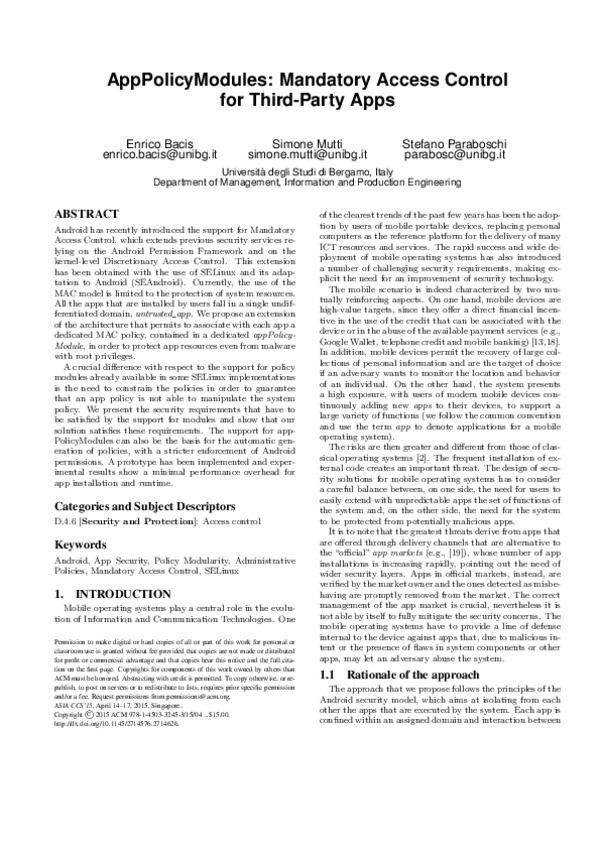AppPolicyModules: Mandatory Access Control for Third-Party Apps
Enrico Bacis, Simone Mutti, Stefano Paraboschi
In Proc. of the 10th ACM Symposium on Information, Computer
and Communications Security (ASIACCS)
Singapore, Republic of Singapore, April 14-17, 2015
Android has recently introduced the support for Mandatory Access Control, which extends previous security services relying on the Android Permission Framework and on the kernel-level Discretionary Access Control. This extension has been obtained with the use of SELinux and its adaptation to Android (SEAndroid). Currently, the use of the MAC model is limited to the protection of system resources. All the apps that are installed by users fall in a single undifferentiated domain, untrusted app. We propose an extension of the architecture that permits to associate with each app a dedicated MAC policy, contained in a dedicated appPolicyModul , in order to protect app resources even from malware with root privileges.
A crucial difference with respect to the support for policy modules already available in some SELinux implementations is the need to constrain the policies in order to guarantee that an app policy is not able to manipulate the system policy. We present the security requirements that have to be satisfied by the support for modules and show that our solution satisfies these requirements. The support for appPolicyModules can also be the basis for the automatic generation of policies, with a stricter enforcement of Android permissions. A prototype has been implemented and experimental results show a minimal performance overhead for app installation and runtime.
@inproceedings{10.1145/2714576.2714626,
author = {Bacis, Enrico and Mutti, Simone and Paraboschi, Stefano},
title = {AppPolicyModules: Mandatory Access Control for Third-Party Apps},
doi = {10.1145/2714576.2714626},
booktitle = {Proceedings of the 10th ACM Symposium on Information, Computer
and Communications Security (ASIACCS)},
location = {Singapore, Republic of Singapore},
day = {14-17},
month = {April},
year = {2015},
}
